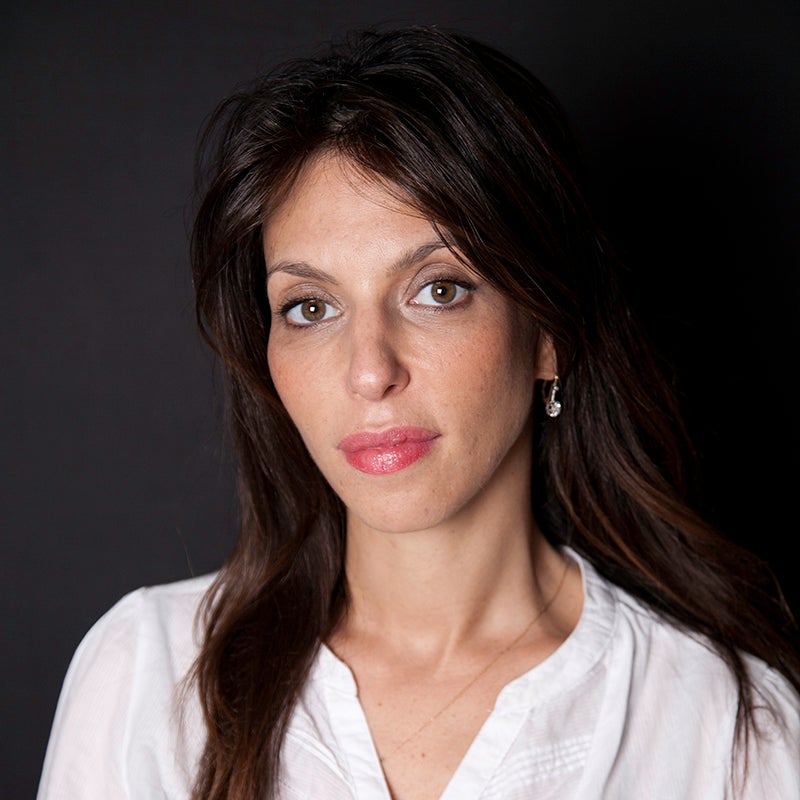January 7, 2016 — Paris, France
One year after the terror attacks against Charlie Hebdo and Hyper Cacher, we sat down with the Paris-based Director of AJC Europe, Simone Rodan-Benzaquen, to get her take on the state of affairs for French Jews.
1. How has the mood among French Jews changed in the year since the attacks against Charlie Hebdo and Hyper Cacher?
French Jews have mixed and sometimes contradictory feelings. First and foremost, the community has been grieving, profoundly traumatized by the attacks.
It is clear that unlike what happened after the murder of Ilan Halimi in 2006 and the 2012 killings of three schoolchildren and a teacher at a Jewish school in Toulouse, when the French people showed little solidarity with the victims, this time France came together. Jews understood that the rest of society was finally coming to see what many in the Jewish community had known and said for years: that attacks on Jews have implications for all of France. Several million people were in the streets expressing solidarity with the victims, reaffirming France’s values, and resisting terror. This was an important positive sign for French Jews.
And yet, many wondered what would have happened if the Jews at Hyper Cacher had been the only victims. The thought that there likely would not have been the same level of solidarity made them feel hurt.
2. Do you feel that French society has responded appropriately, in a way that will have lasting consequences?
It’s too early to say if the effect will be lasting. After the rally on January 11, when more than 4 million people came together, many hoped that this would be a wake-up call, uniting left and right in the interest of France.
It has, indeed, awakened some elements of French society to the crisis of Islamic extremism, but there is still, unfortunately, a widespread apathy. The fractures in French society still persist, and to some extent have even been reinforced. Radicalization is growing. Many on the extreme left align themselves with Islamists, while the populist hatred of the extreme right continues to attract new adherents. Many who wanted to keep the spirit of January 11 alive are being marginalized.
French authorities have put security measures in place, in particular, but not only, for the Jewish community, where schools and synagogues are now protected by soldiers. The government has been laudably outspoken against radical Islam and antisemitism. But the profound problems of integrating immigrants, radicalization, lack of education, and antisemitism persist, and will continue until civil society emerges from its apathy and demands, as you said, “lasting” change.
3. What steps are French Jews taking to stay safe? Are they hiding their Jewish identity in public? Are they considering leaving the country?
It depends on where in France they live and how religious they are. The reality for a religious, “visible” Jew who lives in the difficult outskirts of Paris or Lyon, in the banlieues, will be very different than for a secular Jew who lives in a nice neighborhood. For the first group, staying safe entails making courageous decisions every day. Going out of the house, putting on a yarmulke, going to synagogue, bringing children to a Jewish school—each of these acts take courage. Seeing soldiers every time one visits the synagogue or the school serves as a reminder that he or she is a potential target. Many of these families do not have the financial means to move to a better neighborhood. Leaving France becomes a credible alternative.
For the secular Jew, staying safe has a different meaning, since such a Jew rarely attends synagogue or Jewish events and is less likely to send children to a Jewish school. There is little fear of physical attack, yet such Jews are experiencing growing concern about threats to their identity. Can they maintain the balance between their Jewish and French identities? They worry that one day they might be forced to make a choice.
4. Is the problem of European antisemitism on the way to being solved? What would that solution look like?
Solving the problem will be a long and difficult process requiring a lot of work. Some leaders, such as French Prime Minister Manuel Valls, German Chancellor Angela Merkel, and British Prime Minister David Cameron have begun to grasp the depth of the challenge and have taken principled and courageous positions. There is no simple answer, no one-size-fits-all solution. Much must be done in the areas of education, counter-radicalization, law enforcement, integration, and the promotion of civil society movements to combat this scourge.
More also needs to be done to reinforce democratic and pluralistic values in France. The very essence of a free, democratic society is its capacity to protect minorities. Enhancing democracy will assist the fight against antisemitism, and vice versa.
Finally, Muslim antisemitism is not the only form of Jew-hatred. As Prime Minister Valls has noted, the old antisemitism of the French extreme right “is renewed…. it feeds off hate for Israel. It feeds off anti-Zionism. Because anti-Zionism is an invitation to antisemitism.” While criticism of the policies of any government is legitimate and may be constructive, anti-Zionism has too often served as a thin veil for antisemitism, helping create an atmosphere where all Jews feel vulnerable.
As I said, the road will be long and difficult. There will be setbacks and disappointments, but we here at AJC Europe are more committed than ever to fighting antisemitism and protecting the values of democracy and pluralism for generations to come.



